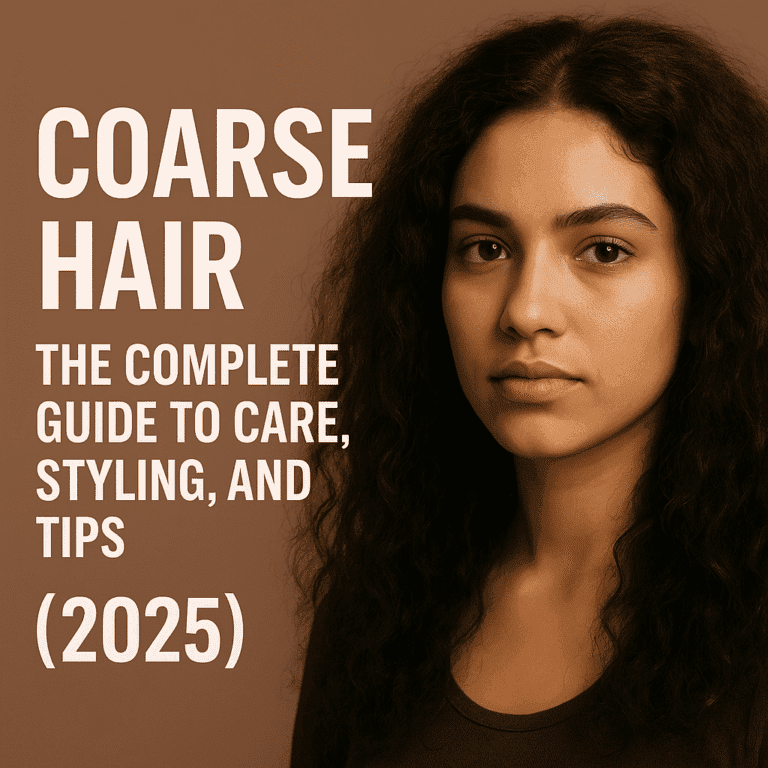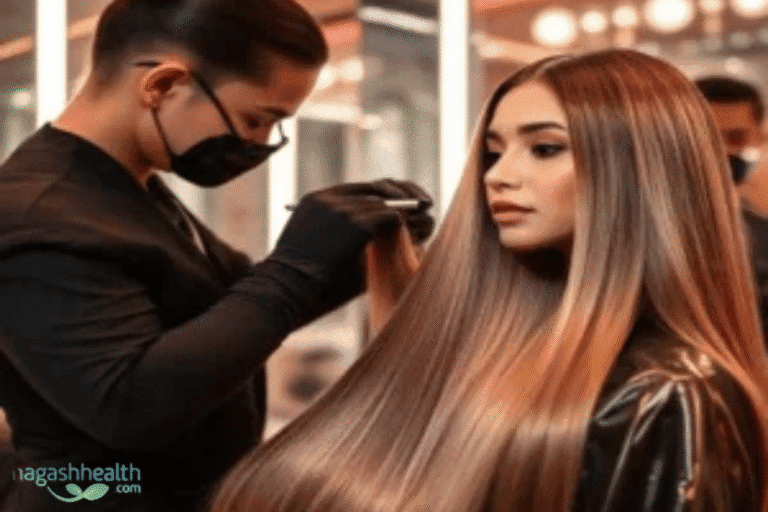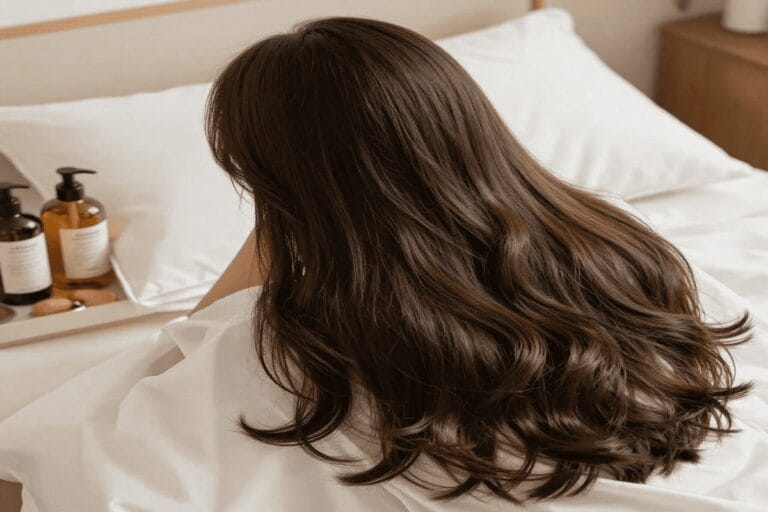Shower Hair Loss: Causes & Remedies 2025
Shower Hair Loss: Causes, Symptoms, and Solutions
Table of Contents
1. Introduction
2. Is Shower Hair Loss Normal
3. How Much Hair Loss is Normal?
4. Why Do We Lose Hair in the Shower?
5. Shower Hair Loss vs Hair Breakage: How to Tell the Difference
6. Hair Loss Symptoms Associated With Showering
7. What Causes Shower Hair Loss?
8. Additional Factors for Hair Falling Out in the Shower
9. Does Shower Frequency Matter?
10. Signs of Abnormal Shower Hair Loss
11. How to Reduce Hair Shedding in the Shower
12. How to Treat Shower Hair Loss
13. Conclusion
14. Frequently Asked Questions
Introduction
Hair loss can be an alarming experience, especially when you notice clumps of hair in the shower drain. While losing some hair during washing is completely normal, excessive shedding can point to underlying issues. This article explores everything you need to know about hair loss in the shower, including its causes, symptoms, prevention, and treatment.
Is Shower Hair Loss Normal?
Many people feel alarAmed when they notice strands of hair falling while shampooing or rinsing, but shower hair loss is generally normal. On average, a person sheds 50 to 100 hairs per day, and the shower is often where this shedding becomes most noticeable.
Why Shower Hair Loss Appears More Noticeable
Several factors contribute to the perception of increased hair loss during washing:
Water and Shampoo Loosen Hairs
Hairs that are in the telogen (resting) phase of the hair growth cycle are naturally ready to shed. The act of washing, combined with water and shampoo, helps release these loose hairs, making shower hair loss more apparent.If your hair becomes rough, dry, or frizzy after every shower, you should also read our guide on Coarse Hair: Care & Styling Tips to understand how to manage hair texture.Massaging the Scalp
Gently massaging the scalp increases blood flow to hair follicles, which can support healthy growth. However, it also helps release hairs that are naturally shedding.Clumping Effect
Hair that would normally shed gradually throughout the day often comes out all at once during the shower, giving the impression of excessive shedding.Wet Hair Visibility
Wet hair strands stick together and cling to fingers or the drain, making shower hair loss appear more dramatic than it actually is.
Key Takeaway
Seeing some hair in the shower drain does not necessarily indicate a problem. Normal shedding is part of the hair growth cycle and helps make room for new strands. Shower hair loss becomes a concern only when shedding is excessive, comes in clumps, or is accompanied by thinning, bald patches, or scalp irritation.
By understanding that some shower hair loss is natural, you can reduce unnecessary worry and focus on gentle hair care practices that promote healthy, strong hair.
How Much Hair Loss is Normal?
As mentioned, losing around 50–100 hairs daily is considered normal. But why does hair appear to fall out more during showers?
Clumping effect: Hairs that would normally fall throughout the day are washed out at once.
Wet hair observation: Wet hair sticks together, making shedding more visible.
Mechanical stimulation: Scrubbing, massaging, and detangling your hair can loosen hairs already ready to fall.
Anything significantly above this range, or if you notice bald patches forming, may indicate abnormal hair loss.
Why Do We Lose Hair in the Shower?
Hair shedding in the shower is a completely natural phenomenon. To understand why it happens, it helps to know a little about the hair growth cycle, which occurs in three main stages:
1. Anagen (Growth Phase)
The anagen phase is the active growth stage, during which hair grows continuously for 2–6 years, depending on genetics and health. Hair follicles in this phase are firmly anchored in the scalp, and hairs rarely fall out.
2. Catagen (Transitional Phase)
During the catagen phase, hair growth slows down, and the follicle begins to shrink. This phase typically lasts 2–3 weeks and marks the transition from active growth to the resting phase.
3. Telogen (Resting Phase)
The telogen phase is the resting stage, lasting about 2–4 months. During this time, hair stops growing and is eventually shed to make room for new strands. Hairs in the telogen phase are naturally looser in the follicle, which is why they often fall out during washing, brushing, or even slight mechanical stress.
Why Hair Falls Out During Showering
When you wash your hair, the mechanical actions involved—such as massaging the scalp, shampooing, and rinsing—help release hairs that are already in the telogen phase. This is why it often seems like more hair falls out during the shower than at other times of the day.
Other factors that can influence the amount of hair lost in the shower include:
Wet hair weight: Water makes hair heavier, which can pull on already loosened strands.
Shampooing technique: Vigorous scrubbing or rough handling can dislodge more hairs.
Scalp massage: While beneficial for blood circulation, massaging can also release naturally shedding hairs.
Key Takeaway
Shower hair loss is generally normal and expected due to the natural hair cycle. Understanding this helps prevent unnecessary worry and encourages adopting gentle hair care practices that minimize breakage while supporting overall hair health.
Shower Hair Loss vs Hair Breakage: How to Tell the Difference
Many people notice strands of hair falling in the shower and wonder whether it’s shower hair loss or simply hair breakage. Understanding the difference is crucial, as each has different causes, symptoms, and solutions.
Shower Hair Loss (Shedding)
Shower hair loss occurs when hair naturally falls out from the scalp. These hairs typically have a white root bulb, are full-length, and come directly from the scalp. The main causes of shower hair loss are internal factors, such as:
Hormonal changes
Stress
Nutritional deficiencies
Medical conditions
These strands are part of the natural hair growth cycle, and shedding them in the shower is usually normal.
Hair Breakage
Hair breakage happens when hair snaps along the shaft instead of falling from the root. Broken hairs are usually short, uneven, and come from the mid-shaft or ends. Hair breakage is caused by external factors, including:
Heat styling tools like straighteners and blow dryers
Chemical treatments such as coloring or perming
Rough brushing or detangling
Tight hairstyles that pull on strands
How to Identify the Difference
Root bulb: Present in shower hair loss, absent in breakage
Hair length: Full-length in shedding, uneven in breakage
Origin: Scalp for shedding, mid-shaft or ends for breakage
By learning to distinguish shower hair loss from hair breakage, you can adopt the right hair care strategies—focusing on scalp health and nutrition for shedding, and strengthening and protecting the hair shaft to prevent breakage.
Hair Loss Symptoms Associated With Showering
Losing some hair in the shower is completely normal, but certain symptoms may indicate excessive hair shedding that warrants attention. Being able to recognize these early signs can help you prevent further thinning and address any underlying causes.
1. Excessive Shedding
While shedding 50–100 hairs per day is normal, losing significantly more than this can signal an issue. Excessive shedding may appear as large amounts of hair falling during shampooing, rinsing, or brushing. Causes can range from temporary stress or dietary deficiencies to hormonal imbalances or medical conditions. Tracking your hair loss over a few weeks can help determine if shedding is abnormal.
2. Thinning Areas
Noticeable thinning of the hair across certain areas of the scalp is a warning sign. Unlike normal shedding, which is generally uniform, thinning areas suggest that hair follicles may be weakening or shrinking over time. Common patterns include a widening parting in women or receding hairlines in men. Early detection allows for timely interventions to prevent permanent loss.
3. Clumps in the Drain
Seeing large clumps of hair in the shower drain can be alarming. While some accumulation is normal, consistently finding significant clumps indicates that more hairs than usual are entering the shedding phase. Factors contributing to this include mechanical stress during washing, hair breakage, or accelerated shedding due to health or nutritional issues.
4. Scalp Irritation
Hair loss accompanied by redness, itching, flakiness, or inflammation may suggest underlying scalp conditions such as seborrheic dermatitis, fungal infections, or psoriasis. Ignoring scalp irritation can worsen hair loss and compromise follicle health. Treating the scalp properly with medicated shampoos or consulting a dermatologist is essential.
Why Recognizing These Symptoms Matters
Early recognition of abnormal hair loss symptoms can help you:
Identify underlying causes such as nutritional deficiencies, hormonal changes, or medical conditions.
Adjust hair care routines to reduce further damage and breakage.
Seek professional help from dermatologists or trichologists if needed.
By paying attention to these signs, you can intervene early, protect your hair health, and prevent minor shedding from becoming a more serious hair loss problem.
What Causes Shower Hair Loss?
Noticing hair strands in the shower can be alarming, but understanding the causes of shower hair loss can help you manage it effectively. Hair shedding in the shower is usually the result of a combination of internal and external factors.
Internal Factors
Hormonal Changes
Hormonal fluctuations can significantly impact hair health. Events such as pregnancy, menopause, thyroid disorders, or androgen imbalance can push hair follicles into the resting (telogen) phase, leading to increased shower hair loss.Stress
Physical or emotional stress can trigger telogen effluvium, a condition where a large number of hairs enter the resting phase prematurely. This can result in more noticeable hair shedding during showers.Nutritional Deficiencies
A diet lacking in protein, iron, vitamin D, zinc, or biotin can weaken hair follicles and contribute to shower hair loss. Proper nutrition is essential for maintaining strong, healthy strands.Medical Conditions
Certain health issues, such as autoimmune diseases (e.g., alopecia areata), scalp infections, or chronic illnesses, can accelerate hair shedding and make shower hair loss more apparent.
External Factors
Harsh Shampoos
Shampoos containing sulfates, parabens, or alcohol strip hair of natural oils, making strands brittle and more prone to falling out during washing.Heat Styling
Frequent use of blow dryers, straighteners, or curling irons damages the hair cuticle, increasing breakage and contributing to the appearance of shower hair loss.Chemical Treatments
Hair coloring, perming, and relaxing weaken the hair shaft and make strands more susceptible to damage and shedding during washing.Tight Hairstyles
Constant pulling from ponytails, braids, or buns can lead to traction alopecia, causing hair to loosen and shed, often visible in the shower drain.
Key Takeaway
A combination of internal and external factors is usually responsible for noticeable hair shedding in the shower. Identifying the underlying causes allows you to take targeted steps—whether through lifestyle changes, gentle hair care practices, or professional treatment—to reduce shedding and maintain healthy hair.
Additional Factors for Hair Falling Out in the Shower
While normal shedding and hair breakage explain most hair loss in the shower, several other factors can contribute to increased hair fall. Understanding these can help you manage expectations and take proactive steps toward healthier hair
1. Genetics and Age
Your genes play a major role in hair density and thickness. Hereditary hair thinning, also known as androgenetic alopecia, can start as early as your twenties and gradually progress with age. As we get older, hair growth slows, and follicles may produce finer, weaker strands. This natural process can make shedding more noticeable during showers.
2. Seasonal Shedding
Many people experience a temporary increase in hair loss during certain times of the year, especially in autumn and spring. This phenomenon, often referred to as “seasonal shedding,” is thought to be linked to changes in daylight, temperature, and hormone levels. While the amount of shedding may increase for a few weeks, it is usually temporary and hair regrowth occurs naturally.
3. Postpartum Shedding
Women commonly notice increased hair shedding after pregnancy. During pregnancy, high estrogen levels prolong the hair’s growth phase, resulting in thicker hair. After childbirth, estrogen levels drop, pushing a large number of hairs into the resting (telogen) phase simultaneously. This postpartum shedding is normal and typically resolves within six to twelve months as hair growth cycles return to their regular pattern.
4. Medications
Hair shedding is a side effect of some medications. Common examples include:
Blood thinners: Can impact the hair growth cycle.
Chemotherapy drugs: Often cause widespread hair loss due to their effect on rapidly dividing cells.
Antidepressants and other prescription medications: Some can disrupt normal hair follicle activity, leading to temporary shedding.
5. Other Factors
Illness or surgery: Major physical stress on the body can trigger temporary hair shedding.
Rapid weight loss or crash diets: Nutritional deficiencies can weaken hair follicles.
Scalp conditions: Dandruff, fungal infections, or chronic inflammation can increase shedding.
Identifying these contributing factors is essential for tailoring a hair care strategy. Some causes, like genetics or postpartum shedding, require patience and supportive care, while others, such as medication-related shedding or nutritional deficiencies, can be addressed more directly with medical guidance or lifestyle adjustments.
Does Shower Frequency Matter?
Many people wonder if the frequency of washing their hair affects hair loss. The answer is yes, but not always directly—how often you wash your hair can influence hair health, but the impact depends largely on your hair type, scalp condition, and the products you use.
Frequent Washing
Washing your hair too often, especially with harsh shampoos containing sulfates, parabens, or alcohol, can strip your scalp and hair of natural oils. These oils are essential for keeping hair moisturized and strong. Without them, hair can become dry, brittle, and more prone to breakage, which may appear as hair loss in the shower.
People with oily scalps might feel the need to wash daily, but even then, using a gentle, sulfate-free shampoo and avoiding excessive scrubbing can help maintain healthy hair and reduce shedding.
Infrequent Washing
On the other hand, washing hair too rarely can also have negative effects. Scalp oils, sweat, dirt, and styling products can accumulate over time, leading to clogged follicles and scalp irritation. This buildup can weaken hair follicles, slow hair growth, and sometimes even contribute to shedding.
Finding the Right Balance
Most hair experts recommend washing hair 2–3 times per week, though this may vary depending on hair type:
Oily scalp: 3–4 times per week with gentle shampoo.
Dry or curly hair: 1–2 times per week, supplemented with conditioning and moisturizing treatments.
Normal hair: 2–3 times per week with a balanced routine.
Tips for Healthy Washing Habits:
Use lukewarm water instead of hot water, which can dry out hair and scalp.
Massage gently—avoid vigorous scrubbing that can loosen hair unnecessarily.
Follow with a conditioner on the mid-lengths and ends to strengthen strands and reduce breakage.
Limit daily use of heat styling tools immediately after washing.
By finding the right washing frequency and using gentle products, you can minimize shower hair loss while keeping your hair clean, healthy, and manageable.
Signs of Abnormal Shower Hair Loss
While some hair shedding in the shower is normal, it’s important to recognize when shower hair loss may indicate a deeper problem. Abnormal hair loss often requires early attention, as prompt intervention can help stop or slow further shedding and support hair regrowth.
1. Sudden Increase in Hair Shedding
Occasional extra strands in the shower are normal, but a sudden spike in shower hair loss can signal an underlying issue. Causes may include stress, hormonal changes, medication side effects, or illness. Tracking your hair shedding over several weeks can help identify unusual patterns.
2. Formation of Bald Patches
Noticeable thinning or bald spots on the scalp is a clear sign of abnormal hair loss. Conditions like alopecia areata, traction alopecia from tight hairstyles, or other medical disorders can cause these patches. Unlike normal shedding, which is usually evenly distributed, bald spots indicate a more serious issue.
3. Hair Falling Out in Clumps
If hair starts to come out in clumps rather than individual strands, it may indicate excessive shower hair loss beyond the typical 50–100 hairs per day. Clumping can result from stress, hormonal imbalances, nutritional deficiencies, or reactions to medications.
4. Scalp Irritation
Hair loss accompanied by redness, itching, flaking, or inflammation often points to an underlying scalp condition, such as seborrheic dermatitis, fungal infections, or psoriasis. Ignoring scalp irritation can worsen hair loss and damage follicle health.
5. Changes in Hair Texture
Hair that becomes thinner, brittle, dry, or unusually fragile may signal stress or damage to hair follicles. These changes often accompany abnormal shower hair loss and can make strands more prone to breakage.
Why Early Diagnosis Matters
Recognizing abnormal shower hair loss early allows for timely intervention through nutritional support, medical treatment, lifestyle adjustments, or hair care changes. Consulting a dermatologist or trichologist can help determine the root cause, prevent long-term thinning, and minimize the risk of permanent hair loss.
How to Reduce Hair Shedding in the Shower
Managing hair shedding in the shower largely comes down to adopting a gentle, consistent hair care routine. Small changes in how you wash, style, and treat your hair can make a significant difference in reducing hair loss over time.
1. Use Mild, Gentle Shampoos
Choosing the right shampoo is crucial. Harsh shampoos that contain sulfates, parabens, or alcohol can strip the scalp and hair of natural oils, leaving strands dry and brittle. Opt for sulfate-free, moisturizing shampoos designed for your hair type. For example:
Fine or thinning hair: volumizing, lightweight formulas
Dry or curly hair: hydrating, creamy formulas
Sensitive scalp: mild, hypoallergenic options
Shampooing gently with these products helps maintain scalp health and reduces hair shedding caused by damage.
2. Wash Hair Gently
Vigorous scrubbing can loosen hairs that are still in the process of shedding naturally. Instead, use light circular motions with your fingertips to massage the scalp. This increases blood flow to the follicles, which can encourage hair growth, while minimizing unnecessary strain on the strands. Avoid using nails or aggressive scrubbing motions.
3. Condition Regularly
Conditioners help strengthen hair strands, lock in moisture, and reduce breakage. Apply conditioner primarily to the mid-lengths and ends rather than the scalp, which can weigh down hair or cause buildup. Leave it on for a few minutes before rinsing to allow the nutrients to penetrate the hair shaft. Deep conditioning treatments or hair masks once a week can also help restore strength and prevent breakage-related shedding.
4. Minimize Heat Styling
Excessive use of heat styling tools like blow dryers, curling irons, and straighteners damages the hair cuticle, making strands more prone to breakage. Whenever possible, let hair air-dry naturally. If you must use heat:
Use the lowest heat setting possible
Apply a heat protectant spray before styling
Limit the frequency to a few times per week
This reduces stress on the hair and prevents unnecessary loss in the shower due to weakened strands.
5. Protect Hair from Chemicals
Chemical treatments such as coloring, perming, or relaxing can weaken hair and make it more prone to breakage and shedding. Try to reduce the frequency of these treatments, or use professional-grade products and follow aftercare routines. Natural alternatives, like herbal dyes or gentle treatments, can also help maintain hair strength.
6. Maintain Proper Nutrition
Healthy hair begins from within. Nutritional deficiencies can lead to increased hair shedding. Include in your diet:
Proteins: eggs, fish, lean meats, legumes
Vitamins: vitamin D, vitamin E, and B-complex vitamins
Minerals: iron, zinc, and selenium
Healthy fats: nuts, seeds, and avocados
Proper nutrition nourishes hair follicles and can reduce shedding over time. Supplements like biotin may also support hair strength if recommended by a healthcare professional.
7. Detangle Hair Carefully
Wet hair is more fragile than dry hair. Avoid pulling or tugging strands while detangling. Start at the ends and work your way up to gently remove tangles with your fingers or a wide-tooth comb. This prevents unnecessary breakage and reduces the appearance of hair loss in the shower.
Consistency is Key
Consistency is the most important factor in reducing hair shedding. Following a gentle washing routine, protecting hair from heat and chemicals, nourishing your body, and careful detangling can significantly decrease hair loss over time. Over weeks and months, these habits help hair appear thicker, healthier, and less prone to falling out in the shower.
How to Treat Shower Hair Loss
If shower hair loss is excessive or persistent, there are several effective ways to manage and treat it, ranging from home remedies to medical interventions.
1. Home Remedies
Scalp Massage: Gently massaging the scalp improves blood circulation to hair follicles, which can strengthen hair and reduce shower hair loss over time.
Natural Oils: Applying oils like coconut, argan, or castor oil nourishes the scalp and hair shafts, helping prevent breakage and reducing visible hair shedding in the shower.
Balanced Diet: Eating a diet rich in proteins, leafy greens, nuts, and seeds supports healthy hair growth and can minimize excessive shower hair loss caused by nutritional deficiencies.
2. Medical Treatments
Topical Solutions: Products such as minoxidil may stimulate hair growth in certain cases, helping to counteract excessive shower hair loss.
Supplements: If deficiencies are identified, biotin, iron, zinc, and vitamin D can support hair health and reduce hair shedding.
Prescription Treatments: In some cases, medications like finasteride (for men) or hormonal therapy for specific conditions may be recommended by a healthcare professional.
3. Professional Consultation
Persistent or worsening shower hair loss should be evaluated by a dermatologist or trichologist. Clinics like the Wimpole Clinic specialize in diagnosing and treating hair loss, offering personalized solutions based on the underlying causes of excessive shedding.
Key Takeaway
By combining home care, medical treatments, and professional guidance, you can effectively reduce shower hair loss, strengthen hair follicles, and maintain healthy, resilient hair. Early intervention often yields the best results.
Conclusion
Some shower hair loss is normal and part of the natural hair growth cycle. However, excessive shedding, bald patches, or scalp irritation may indicate a more serious issue that requires attention. By adopting gentle hair care routines, protecting hair from heat and chemical damage, maintaining proper nutrition, and seeking professional guidance when needed, you can effectively reduce shower hair loss and support healthy, strong hair. Understanding the causes and practicing preventive care is key to keeping hair vibrant and minimizing hair shedding during showers.
Frequently Asked Questions About Shower Hair Loss
Q1. How much hair loss in the shower is normal?
Ans. Shedding around 50–100 hairs per day is typical and generally considered part of the natural hair growth cycle. Not all hair that falls out appears in the shower, but some strands are naturally released during washing.
Q2. Why do I lose so much hair in the shower?
Ans.Shower hair loss often appears more noticeable because mechanical stimulation—such as shampooing, massaging, and rinsing—helps loosen hairs that are already in the resting (telogen) phase.
Q3. What causes sudden hair loss in the shower?
Ans. Rapid or sudden shower hair loss can be triggered by stress, hormonal changes, illness, or certain medications. If sudden shedding persists, consulting a hair specialist is recommended.
Q4. How can I reduce hair shedding in the shower?
Ans. To minimize shower hair loss, follow these tips:
Use gentle, sulfate-free shampoos
Avoid excessive heat styling
Maintain proper nutrition rich in protein, vitamins, and minerals
Condition regularly to strengthen hair strands
Q5. How do I tell the difference between hair loss and breakage in the shower?
Ans. Shower hair loss (shedding) typically involves strands with a root bulb, originating from the scalp. Hair breakage, on the other hand, occurs along the mid-shaft or ends without a root bulb.
Q6. What should I do if I’m losing a lot of hair in the shower?
Ans. If shower hair loss is excessive, consult a hair specialist, review your hair care routine, and consider medical or nutritional interventions to address underlying causes.







9 Comments